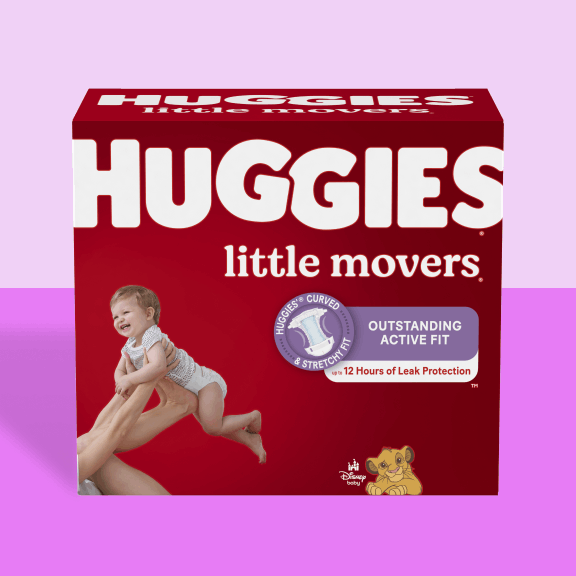Health & Wellness
What to eat during pregnancy

Foods to eat during pregnancy
You don’t have to deprive yourself while pregnant, but you should be mindful that you are getting enough nutrients through your diet. Fruits, vegetables, protein, fiber and whole grains are an important part of any diet, but even more so in pregnancy. They all work in tandem to help keep you full and help your body work the way it needs to in pregnancy. Fruits and vegetables: Fruits and vegetables are low in fat, low in cholesterol and low in calories. Many are high in fiber, like apples and carrots, which help with passing food through your digestive system. Fiber also can help lower your risk of heart disease and diabetes as well. [Text Wrapping Break] Lean protein: Lean proteins can come from animal sources like fish, turkey, and chicken, but protein is also found in eggs, yogurt, beans, chickpeas, and lentils. [Text Wrapping Break] Whole grains: Carbohydrates get a bad reputation sometimes, but there’s no reason for it. Whole grains like oats, farro, quinoa and whole wheat are a part of a balanced diet. Drink lots of water—the American College of Obstetricians and Gynecologists suggest upping your water intake to between 64 and 96 ounces.Extra calories when pregnant
Even thought you might have heard the phrase “eating for two” associated with pregnancy, that’s not really the case. The American Pregnancy Association recommends pregnant women only increase their caloric intake by 300 calories per day. For example, that’s only one additional snack portion, such as ¼ cup of almonds and two cheese sticks, or half a cup of plain hummus with carrots.Nutrients you need when pregnant
According to Medical News Today, pregnant women need more folate, choline and Vitamins B, A and D, among other nutrients. Most of these should be covered by a good prenatal vitamin, so speak to your doctor about which vitamin you should choose. Your doctor will also be able to tell you if you need other additional vitamins. Many women do not get enough iron during their pregnancy. Your doctor might recommend an iron supplement on top of the iron found in your prenatal vitamin, or he or she might recommend you up your intake of foods rich in iron, such as lean red meat, fish and poultry, like chicken or turkey.What not to eat during pregnancy
Many foods have a high risk of food-borne illnesses, which can complicate pregnancies and even cause early labor or pregnancy loss. There are a lot of foods that are on the “no” list during pregnancy, some of which you might eat often. The short of it is that the risk is not worth the result. Here are a few of the most common foods to avoid, with a full list available here. Deli meat: While deli meats like turkey can be a good source of lean protein, it’s not worth the risk of being exposed to listeria, a bacterium that can give you flu-like symptoms. If you really need your deli meat fix, it’s recommended to heat it up for one minute in the microwave to kill any potential bacteria. Raw anything: Raw meat, raw eggs and raw shellfish are big no-nos for the obvious reason that they are raw and can easily be cross-contaminated. That unfortunately means no poached eggs, no tartare, no ceviche or anything similar. Unpasteurized foods, like some milks and cheeses: Similar to raw items, the cross-contamination risk factor is high. Cheese like Brie, feta, some bleu cheeses and cotija cheese can be unpasteurized. Check the labels before consuming. Fish high in mercury: Bad news for sushi fans—fish high in mercury, like mackerel, swordfish and tuna should be avoided. Mercury found in these fish has been linked to developmental delays in babies. You can eat Safe Catch tuna in moderation. Smoked or cured meats and seafood: Because these items aren’t cooked at high temperatures like a steak or a piece of fish, they are unsafe. There are too many variables in the way they are cooked, and the “doneness” of each varies by brand. Sugar: You definitely can have sugar while pregnant, and you might even be craving sugary items. It’s always good to consume sugar in moderation, but especially during pregnancy, when you could be at risk for gestational diabetes. Your doctor will check you sometime in the second trimester for gestational diabetes, and will help you come up with an eating plan if you are at risk. Alcohol: Alcohol should never be consumed while pregnant. Consuming alcohol while pregnant can increase the risk of Fetal Alcohol Spectrum Disorders according to the CDC. Fetal Alcohol Spectrum Disorders include behavioral, physical, and intellectual disabilities. There is also a risk of stillbirth and miscarriages.Healthy pregnancy recipes to try
Now that you know what you can and can’t eat, you might be looking for some healthy pregnancy recipes to try. Below are a few to get you started, but remember, so long as you are eating the rainbow and getting enough carbs, healthy fats, and proteins, you are feeding your baby. Healthy pregnancy breakfasts: Breakfast is a very important meal. Smoothies of any kind are great for pregnancy because you can pack a lot of fruits and veggies into them. Green smoothies are particularly popular. You can add protein to them to make it a complete meal. Other ideas include a Southwestern breakfast skillet, packed with protein-rich eggs and cheese and lots of veggies, and banana spinach muffins. When making breakfast muffins—or even breakfast cookies—check the ingredients to make sure they are heart-healthy and are not full of sugar, especially if you have gestational diabetes. Pancakes are relatively easy to make, and you can definitely make healthier versions of pancakes that contain whole grains and sugar substitutes. (Make sure you’re watching the syrup amounts.) A safe bet is always a jar of overnight oats, and there are endless recipes online of how you can make interesting flavors, like pumpkin spice or banana bread. A bonus: oats are excellent for milk production, so overnight oats are something you can eat well into your breastfeeding experience if you are choosing to breastfeed. Healthy pregnancy lunches: Like every meal, a healthy lunch should include protein, good fats, and heart-healthy carbohydrates. Salads like this shredded brussels sprouts salad salad are filling and delicious. Packed with fiber and other nutrients, you can top it with extra protein like chicken or fish. A good alternative is something like a crispy cabbage salad or a kale and white bean soup. If you are more of a sandwich person, try a portobello panini or an Asian chicken wrap for something outside the box. Remember, avoid deli meat, as the risk of cross-contamination from the bacteria listeria is possible. Healthy pregnancy dinners: When you’re pregnant, you get tired easily. That might mean not having the energy to cook dinner by the time dinnertime rolls around. But simple to assemble recipes like a cauliflower veggie burrito bowl or sweet corn and black bean tacos tacos can make eating healthy easy. You can eat indulgent foods at home, such as florentine pizza or stir fry sesame noodles, without all the extra grease and calories that come with takeout. Or, try something new like creamy butternut squash farro or fennel-rubbed porkchops for a delicious, filling and healthy meal. Healthy pregnancy snacks: Healthy pregnancy snacks are a good idea to keep on hand as you never know when you are going to get hungry. Think of things high in fiber to keep you fuller longer, as well as colorful snacks to give you a lot of vitamins and nutrients. Examples include cheese sticks, a portion of nuts like cashews or almonds, dried fruit, granola bars, roasted chickpeas and more.
Explore more pregnancy tips at Huggies.com.













